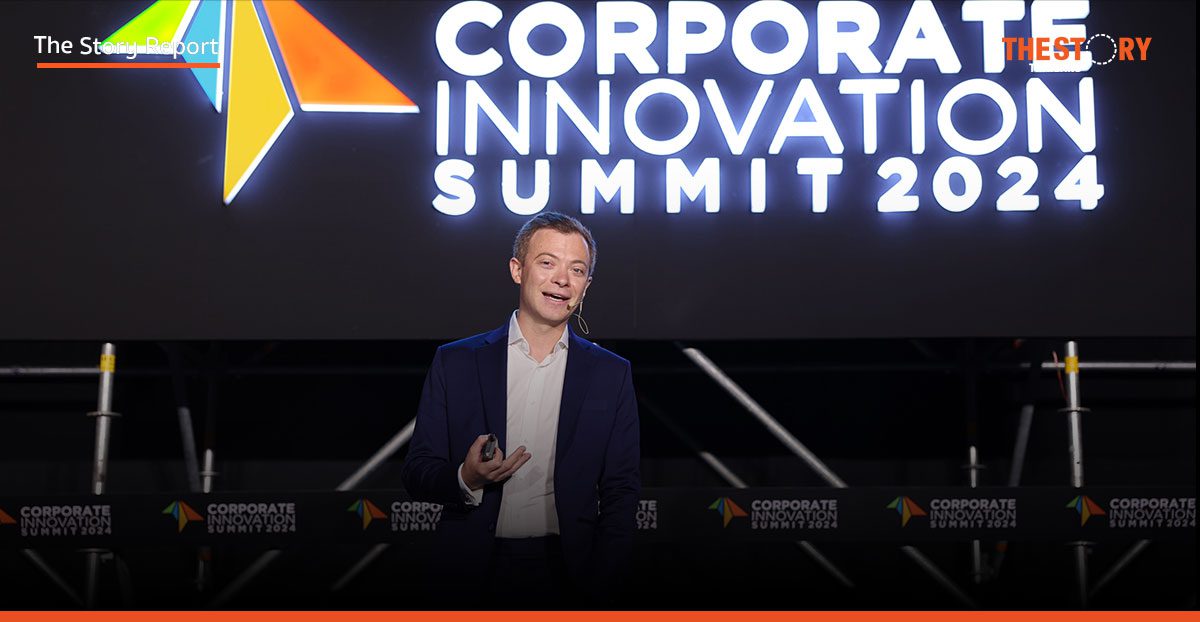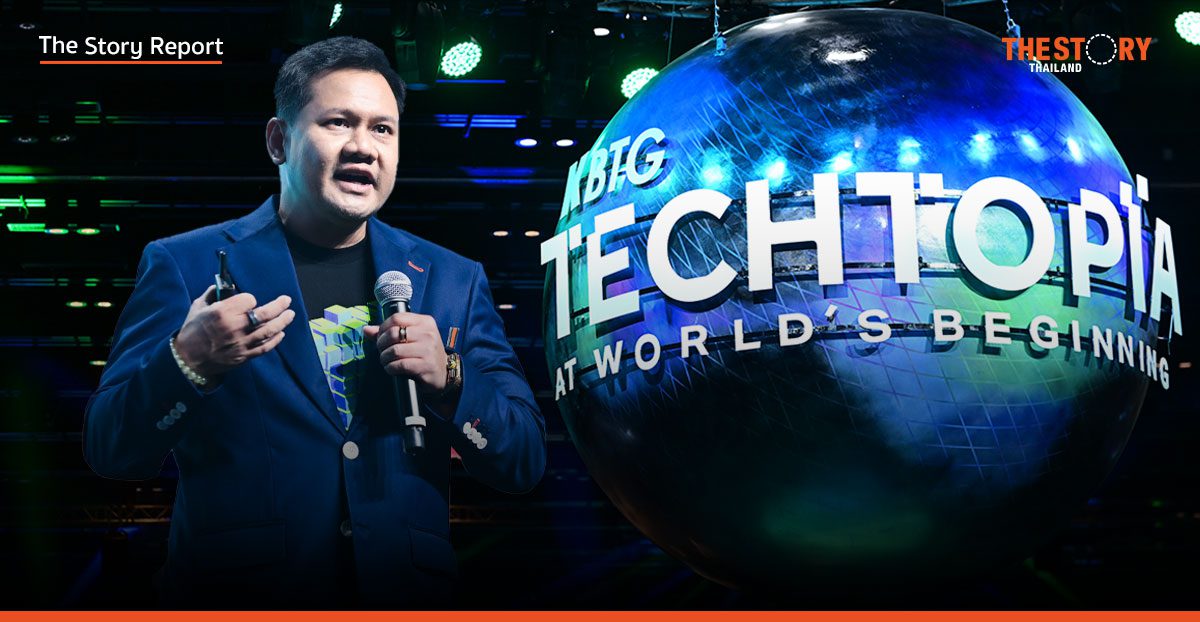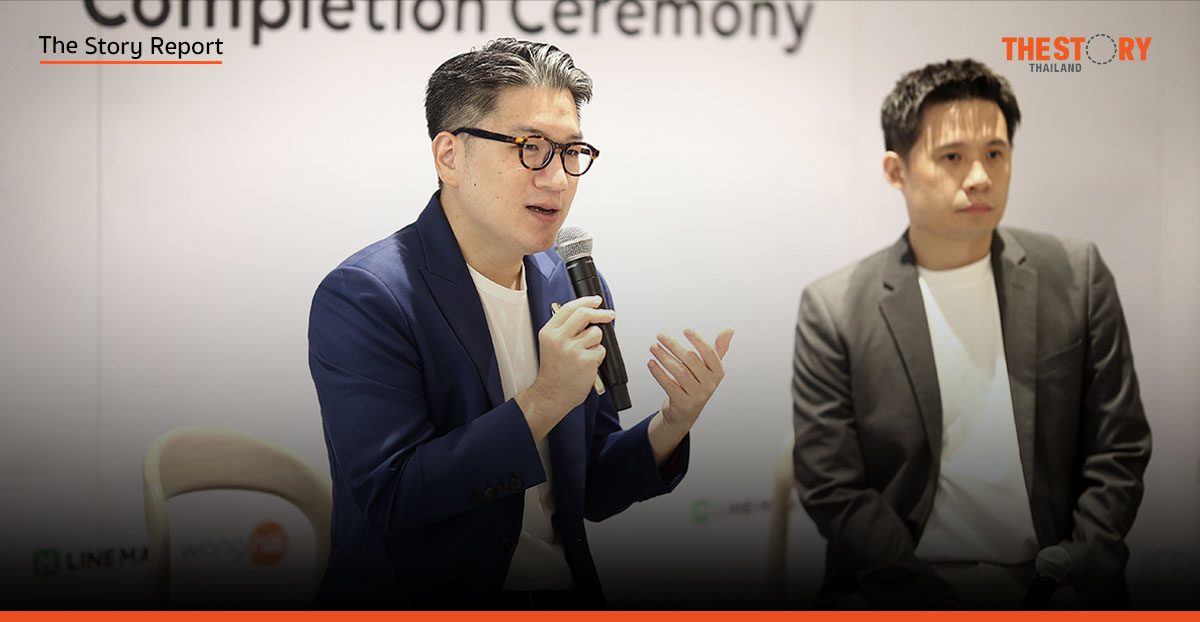Hoxton Farms, a London-based biotech startup developing cultivated animal fat for meat alternatives, sees a big potential for its products in a $500-billion (16.4-trillion-baht) global market for edible fats and oils.
CEO and co-founder Dr Max Jamilly said his firm’s first product is cultivated pork fat. “It tastes just like traditional pork fat. It’s healthy. We can control cholesterol and saturated fat. We can add omega-3 [fatty acids] to make it even healthier than the real thing.”
Early last year, Hoxton Farms opened the world’s first pilot facility for growing cultivated fat in London, with a capacity of up to 10 tons per year. The 14,000-square-foot (1,300-square-meter) site features cell culture laboratories and a food development kitchen.
“We’re making tons next year, but tons is just the beginning and that’s just pilot scale. The meat alternatives market at the moment is millions of tons, and of course the meat industry is bigger than that,” Jamilly said.
He was speaking on the topic “Food of the Future: Revolutionizing the Future of Food Production” at the recent Corporate Innovation Summit (CIS 2024) in Bangkok.
Setting sights on Asia
“We’re a biotech company turning into a food company. That means we know a lot about how to grow cells and quite a bit about food too.”
On its website, Hoxton Farms offers a brief description about its business: “We craft cruelty-free, sustainable fats to combine with plant protein for delicious meat alternatives.”
Jamilly reckoned that consumers now look for products that are better for them and for the planet – “something tasty, healthy, sustainable, and ethical too”. He added that as consumers eat more and more pork and other kinds of meat, they are becoming increasingly concerned about the source of that meat, its quality, and also how safe it is for them.
According to the CEO, its technology allows Hoxton Farms to “scale at very low cost, very quickly, and with extremely high yields, and in a sustainable way”.
He said the ability to scale helps his firm to reach cost parity with traditional fat, which it expects to achieve before the end of the decade. “At that point, we’ll be able to undercut the price of traditional pork fat as a commodity, and hopefully completely change the supply of traditional agriculture.”
If that goal is reached, Hoxton Farms will be able to produce over 10,000 tons of cultivated fat per year, Jamilly said. “Our cost of goods will be well below $2 per kilogram, which gives us margins over 50%,” he added.
The CEO said his company plans to market its products in 2026, with a focus on East Asia. “We think this is the perfect place suited for the technology, the regulation, the commercial ambition, and the expertise that we need to change the world.”
He also said that Hoxton Farms is looking for local partners to help it bring the products to market. “We’re looking for partners to help us navigate the capital, technical and logistical challenges of manufacturing scale-up,” he said.
Fat is key to tastiness
The CEO reckoned that global demand for meat and meat alternatives is soaring, but meat alternatives don’t taste good enough because they’re missing one key ingredient – fat.
“Fat makes meat taste and smell and sizzle. It’s what makes it irresistible. And without the right fat, it’s impossible to make meat alternatives that can convince flexitarians to switch from delicious traditional meat to the alternatives instead,” Jamilly said.
A flexitarian is someone who is mostly vegetarian but also sometimes eats meat and/or fish.
The CEO pointed out that plant oils like coconut oil – the most commonly used hard fat in today’s meat alternatives – are not tasty enough. “Nobody wants a burger that tastes like coconut. Also, [plant oils] are not especially healthy or sustainable. And they’re really difficult to manufacture because they’re quite unstable at high temperatures.”
At Hoxton Farms, real animal fat is grown from stem cells, without the animals. “We can turn stem cells into real pork fat in under three weeks,” Jamilly said.
Stem cells taken from adult pigs or cows are stored in the freezer. To start the production process, a tiny number of stem cells from the freezer are put in a fermenter. “Inside the fermenter, we convince the cells that they’re still inside a pig. We give them gas to breathe. We heat them to 37°C, and we give them sugar, salt, and protein from plants that the pig would normally get from its food. The cells spend a while growing, and then we switch them to a high-fat diet – just like they would in the pig. They start maturing into real delicious fat. That’s what we harvest,” the CEO explained.
Interdisciplinary team of experts
Jamilly, a synthetic biologist, founded Hoxton Farms with mathematician and computer scientist Ed Steele in 2020.
“I started the company with my oldest childhood friend Ed, a mathematician by background. Everything we do combines these incredible worlds of maths and machine learning and biology to solve what is ultimately a question of cost and scale. And that’s a big data problem,” he said.
At its London headquarters, Hoxton Farms has a 50-strong interdisciplinary team of mathematicians, biologists, engineers, and culinary experts.
“On our team, we have industry-leading engineers. We have the first person ever to bring a cultivated meat product to market, which he did in Singapore in 2018 before joining us. And we have a two-star Michelin chef,” the CEO said.
“In the last four years, we’ve raised in the order of $35 million,” he said, adding that the investments mainly came from the US, the UK, and other European countries.












